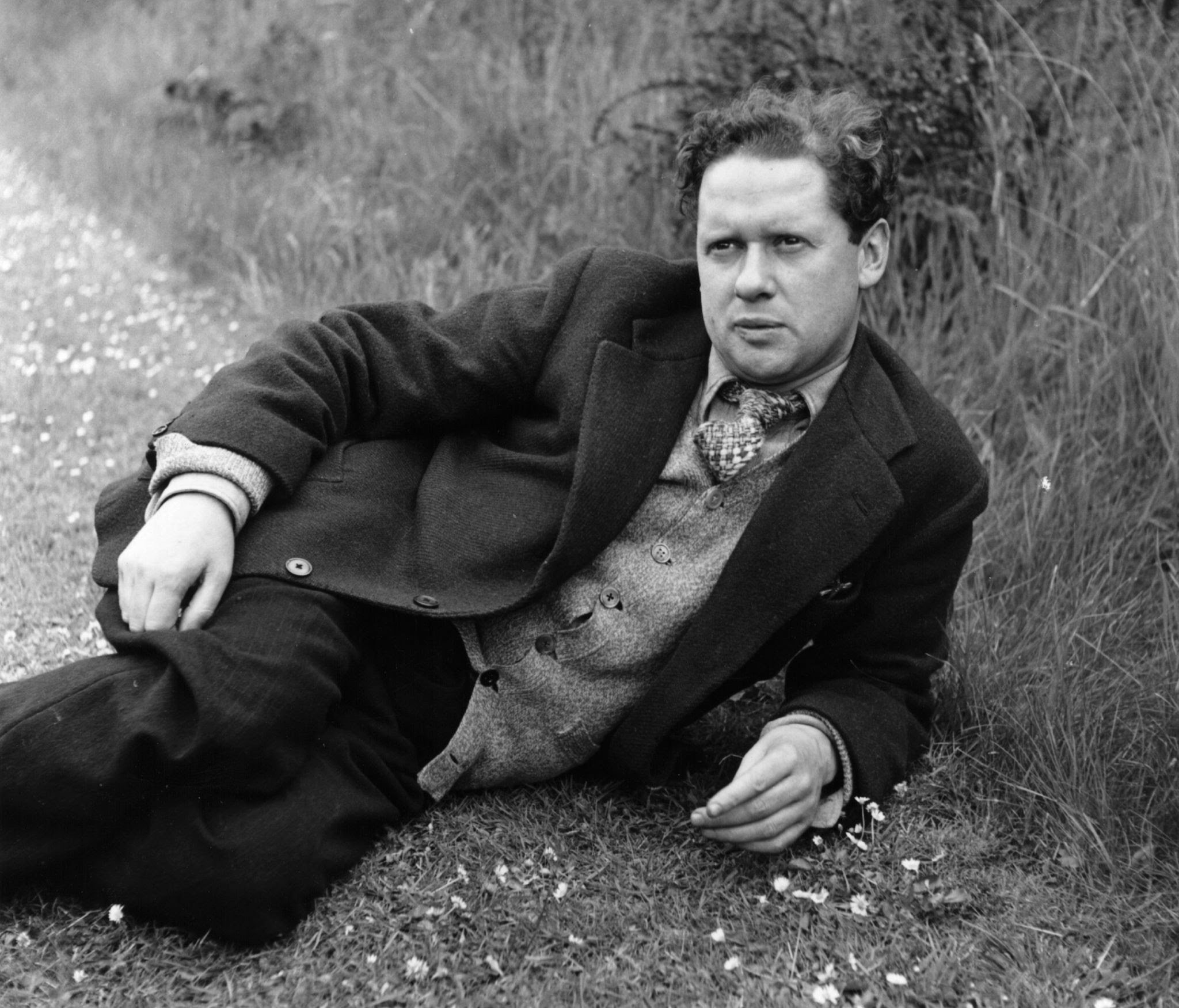Feels Like Home to Me: Music, Memory, and my own private Fern Hill
Fern Hill (photo: BBC)
In his classic 1946 poem, Fern Hill, Dylan Thomas recounts an idyllic youth spent on the farm:
“Now as I was young and easy, under the apple boughs”
Pastorale imagery and Eden-esque imaginings abound. An innocent and newborn existence, decades before booze snuffed it out for good.
Those of us who spend time in the symphonic/choral/classical world eventually encounter beautiful setting of Thomas’ text by John Corigliano, and I am no exception: as a conductor, I’ve directed every existing orchestral version of Fern Hill — chamber, medium, and symphonic — as well as the piano-accompanied iteration. It’s one of the very few works I could conduct from memory if arbitrarily shaken awake at 3am, and (much like the poem’s depiction of youth) it’s a rare piece which that never grows old for me.
[SIDE NOTE: please do not ever wake me up at 3am to conduct anything. That is just plain rude]
While each performance has taught me much, the most profound encounter with this work occurred in my early years as a professional singer. At the age of 26, I was honored to work on the world-premiere performance of his Dylan Thomas Trilogy (of which Fern Hill is a part) during my graduate studies at the University of Texas.
Dylan Thomas (photo: Francis Reiss/Getty Images)
The first rehearsal with John Corigliano is one I’ll never forget. Our conductor (and my conducting teacher) Craig Hella Johnson had been preparing us for this moment over the course of several months, and as solid as we may have felt on Fern Hill, we were feeling a little shaky on the final movement, Poem on His Birthday. This expansive musical landscape is expert, territory (as in, final boss stuff). In spite of the practice time we’d logged, were feeling a little further away than we’d hoped to be in its gnarly and atonal passages.
But this is often how it goes when presenting new and challenging music.
The composer had stepped into the orchestral rehearsal room fresh from his plane trip, and we launched into this tricky movement. Each of us would sneak peeks at John to gauge his reaction, and I’m pretty sure I’m not the only one whose heart sank with each inch his head would sag. Eventually, he held his drooping head in his hands, where it remained for the duration of the run.
After what felt like an eternity, the final sonority drifted away. The composer stood up and abruptly left the room.
John Corigliano (photo: Jack Mitchell/Getty Images)
Without uttering one single word.
Well, crap.
Perhaps feeling more dejected as anyone in the room, Craig heroically shook off the awkwardness, and launched into his notes for improving sections X, Y, and Z. After roughly fifteen minutes, John reentered the hall, asking Craig if he might address the musicians. Craig yielded the podium, while each one of us steeled ourselves for a most brutal teardown at the hands of one of the world’s most famous living composers.
“Dear friends,” said John, “I wish to deeply apologize.
It was my job to focus intently on your rehearsal, but I found myself unable to do so. The thing it, I have never once in my life cried in a rehearsal of any of my compositions… that is, until this very day.
Please forgive me, but I desperately needed a few moments to collect myself.
Thank you, thank you, THANK YOU for your beautiful musicianship, and for bringing so much love and care to my music.”
[This being paraphrased from memory 20-something years on, though I feel it’s 93% accurate]
He then jumped straight into business mode and began delivering his various notes on various passages and sections.
Of the 150 or so collegiate musicians there that day, I know not one who would deny that this moment was a life-defining one for them.
The Baldwin Farm (photo by the author)
As artists, we are required to bring our poetic imaginations to everything we do, even if we have to fabricate landscapes our own images in our minds. Having never the opportunity to visit Wales in my travels, I’ve had to dig deep into the poems of Dylan Thomas, the musical output of John Cale, and the paintings of Joan Baker (alas: outside of countless European tour stopovers at Manchester Airport, I’ve not experienced the wonder of England at all). While prepping that first performance with the composer — and for every subsequent time I’ve encountered the piece — I’ve had to rely upon my own past rural experience to bring my fullest self to the work.
And having grown up in small-town Maine, I’ve abundant memories from which to pull.
My family grew our own vegetables and had chickens from time to time, though we weren’t actual farmers. My father, however, WAS raised on a legit farm, and we’d frequently pop by the old Baldwin homestead to visit his parents and any combination of dad’s eleven (!) siblings and their respective families. While the adults would visit and drink copious amounts of beer, my sisters and I would play hide and seek out in the large field with our cousins, horseplay in the hayloft, and get into all sorts of wholesome trouble.
No cousins or siblings were harmed in this photo… the possible exception being the author (far left)
“… that time would take me up to the swallow thronged loft…”
This would be THE place I’ve pictured each time I perform Fern Hill: reflections of a time in my own life when things were simple (and — not unlike the poet — many years before I was forced to exorcise my own chemical demons).
My memory of the place grew all the more hazy in the ensuing decades, and while the property remained in the extended family following the death of my grandparents, life eventually took me to distant places. In spite of the nostalgia I held for this sacred spot, I harbored little hope that I’d set foot within the walls of this humble home again.
No loft swallows were harmed in the taking of this photo
Fast-forward to 2021: my eldest sister has purchased the property with her husband, and my fiancée and I are gearing up for our first family since Covid shut down the world. Upon landing in Boston, a joyous reunion is had at the family home in Sommerville.
A beautiful time, to be sure, though Anne is up to her ears, hectically prepping her five (!) kids for school, college, work, moving, etc. At a rare moment of calm in the activity maelstrom, she tosses us the keys to the farm, offering Emily and I a quiet weekend getaway. We graciously accept.
We head north, wind our way to Route 1 toward the tiny town of Nobleboro, and after several hours we pull into the Baldwin Farm driveway. This utterly ordinary and yet so magical place imprinted indelibly upon my memory.
Breakfast and reading time with the fiancée
Upon opening the door to the farmhouse, I’m absolutely overcome with memories of a home I’ve not seen since I was nine or ten. A few things have changed, but everything else is exactly as I remembered, if not a bit smaller (funny how everything seems so immense when we’re little). There’s the couch where Grampy regaled me with tales of working on warships at Bath Iron Works. Here’s the spot where my Grammy sat for the only clear conversation I recall she and I having (she passed very shortly after my third birthday). So much of who and what I am stems from this tranquil wooded place, and I’m overwhelmed with happiness for the opportunity to commune with it once more.
“And as I was green and carefree, famous among the barns
About the happy yard and singing as the farm was home.”
In the dreadful wake of COVID shutdowns, insurrections, social injustices, and unimaginable horribleness the world has thrown our way the past couple years, I can safely say that this moment — right here — is the happiest my heart has been in a very, very long time.
Sigh.
The word “gratitude” doesn’t quite cover it.
But it will have to suffice for now.






